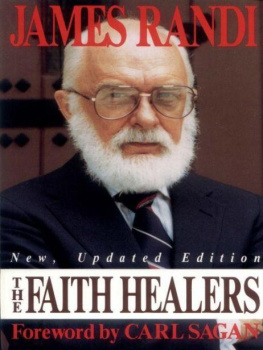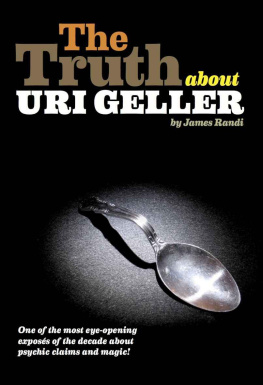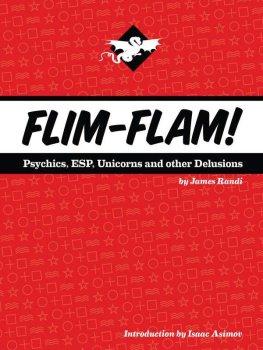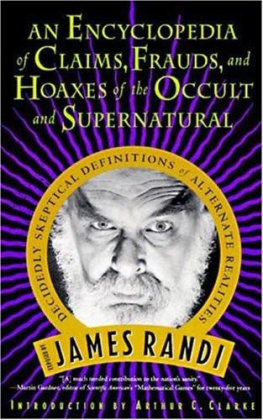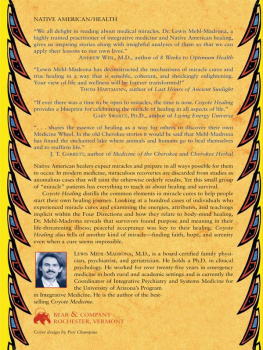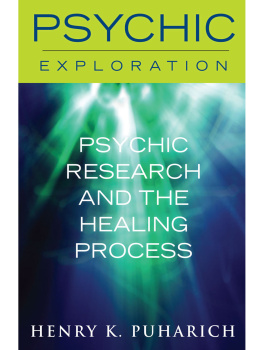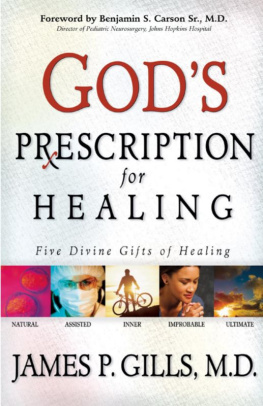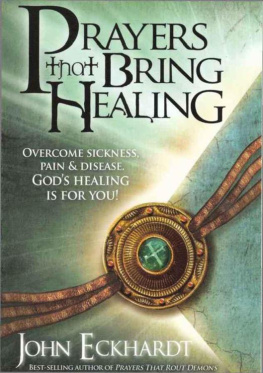Table of Contents
Also by James Randi
The Truth About Uri Geller
Houdini: His Life and Art (with Bert Sugar)
Flim-Flaml
Test Your ESP Potential
Published 1989 by Prometheus Books.
The Faith-Healers . Copyright 1989 by James Randi.
All rights reserved. No part of this publication may be reproduced, stored in a retrieval system, or transmitted in any form or by any means, electronic, mechanical, photocopying, recording, or otherwise, without prior written permission of the publisher, except in the case of brief quotations embodied in critical articles and reviews.
Inquiries should be addressed to
Prometheus Books, 59 John Glenn Drive, Amherst, New York 14228-2197,
716-691-0133, ext. 207. FAX: 716-564-2711. WWW.PROMETHEUSBOOKS.COM
03 02 01 8 7 6 5
Library of Congress Cataloging-in-Publication Data
Randi, James.
The faith-healers.
1. Spiritual healingControversial literature. 2. HealersControversial literature. I. Title.
BT732.5.R36 1987 615.8.52 87-17241
ISBN 0-87975-369-2
Printed in the United States of America on acid-free paper
There was a small boy on crutches. I do not know his name, and I suspect I never will. But I will never forget his face, his smile, his sorrow. He is one of the millions robbed of hope and dignity by charlatans discussed in this book. Wherever and whoever he is, I apologize to him for not having been able to protect him from such an experience. I humbly dedicate this book to him and to the many others who have suffered because the rest of us began caring too late.
Foreword
by Carl Sagan
Hippocrates of Cos is the father of medicine. He is still remembered 2,500 years later by the Hippocratic Oath (a modified version of which is still commonly taken by medical students upon their graduation). But he is chiefly celebrated because of his efforts to bring medicine out of the pall of superstition and into the light of science. (A similar emergence of medical science from mysticism occurred a few centuries later in China under the tutelage of Bian Que.) In the diagnosis of disease, Hippocrates helped lay the foundations of the scientific methodurging careful observation, honest evaluation, and a willingness to admit the limitations of the physicians knowledge. In a typical passage he wrote: Men think epilepsy divine, merely because they do not understand it. But if they called everything divine which they do not understand, why, there would be no end of divine things. As knowledge of medicine has improved since the fourth century B.C., there is more and more that we understand and less and less that has to be attributed to divine interventioneither in the causes or in the treatment of disease. Childbirth and infant mortality have decreased, lifetimes have lengthened, and medicine has improved the quality of life for many people on Earth.
But science imposes, in exchange for its manifold gifts, a certain onerous burden. We are enjoined also to consider ourselves scientifically, to surmount as best we can our own hopes and wishes and beliefs, to view ourselves as we really are. We know that in looking deep within ourselves, we may challenge notions that give us great comfort in the face of the many terrors of the world. In a life short and uncertain, in a time whenprecisely because of the success of medicinepeople die mainly from medically incurable disease, it seems heartless to deprive them of the consolation of superstition when science cannot cure their anguish. But we cannot have science in bits and pieces, applying it where we feel safe and ignoring it where we feel threatened. That way lies hypocrisy, self-deception, and a dangerously constrained future.
Copyright 1987 by Carl Sagan.
Few rise to this challenge as fearlessly as James Randi, accurately self-described as an angry man. Randi is angry not so much about the survival into our day of antediluvian mysticism and superstition, but about how this mysticism and superstition work to defraud, to humiliate, and sometimes even to kill. Randi is a conjuror who has done much to expose spoon-benders, remote viewers, telepaths, and others who, perhaps through insufficient self-knowledge, have bilked the public with claims at the boundaries of science. He has received wide recognition among scientists and is a recent recipient of the MacArthur Foundation (so-called genius) Prize Fellowship.
In this book, which can properly be described as a tirade, Randi turns his attention to faith-healers. He has done more than anyone else in recent times to expose pretension and fraud in this lucrative business. He sifts refuse, reports gossip, listens in on the stream of miraculous information coming to the faith-healernot by inspiration from God, but by radio from the preachers wife backstage; he challenges the reluctant clergymen to provide any serious evidence for the validity of their claims; he invites local and federal governments to enforce the laws against fraud and medical malpractice; he chastises the news media for their studied avoidance of the issue. He shows concern for the sick who are being bilked and remorse that, even after theyve been taken to the cleaners, they will not acknowledge that theyve been bilked. Its simply too painful to admit.
He asks, with devastating effectiveness, the simplest common-sense questions: Do we have any independent medical knowledge that the person whose blindness has been cured was in fact sightless before going to the faith-healer? Was the individual who dramatically stands up from her wheelchair and walks after being blessed really confined to a wheelchair before the service? Only because we so want to believe in such cures do we accept such shoddy evidenceexperiments without controls.
Randi is rambling, anecdotal, crotchety, and ecumenically offensive. He raises questions that many of us would prefer not to consider. But I think it is important that we pay attention. It is not only a matter of rooting out bunko and cruelty directed to those least able to defend themselves and most in need of our compassion, people with little other hope. It is also a timely reminder that mass rallies and television and mail-order technology permit other kinds of lies to be injected into the body politic, to-take advantage of the frustrated, the unwary, and the defenseless in a society with political illnesses that are being treated ineffectively if at all. We may disagree with Randi on specific points, but we ignore him at our peril.
Acknowledgments
I wish to thank the following persons for their help in gathering data for this book. They did so without any promise of fame or fortune because they believed in truth.
David Alexander is a valued colleague and fellow investigator. Richard Brenneman and Shawn Carlson are faith-healer-watchers deluxe. Jason Kafcas, and Brian Schwartz provided valuable legwork in Detroit in pursuit of Peter Popoff.
Scot Morris is a buddy who came through many times when needed. Ronn Nadeau, Steven Schafersman, Gae Kovalick, and Andrew Skolnick are tireless workers who care very much, and Chuck and Paula Saje are two of my valued friends who helped snare W. V. Grant in Fort Lauderdale.
As for the conjurors who generously gave of their time, Willy Rodriguez is a clever devil who dared much for me, and Steve Shaw is the mental wonder who solved the Popoff gimmick. Bob Steiner is a busy skeptic and valued friend who brought his considerable magical talents to the work.
Joe Barnhart is a scholar who suggested valuable additions and ideas for this book. Martin Gardner, as always, has offered me perpetual support and encouragement in all these endeavors.

